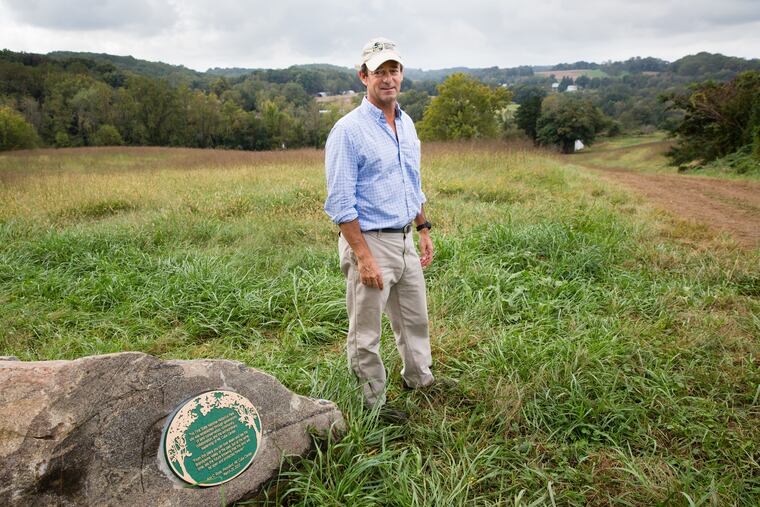They vowed to ‘Save the Valley.’ They did — and it’s soon to be a national park
Change is coming to First State Historical National Park.

The treads of his shoes dig small ruts into the dirt and mud. Sweat starts to collect on the lower half of his back, bleeding through a sky-blue shirt crisscrossed with red lines.
Blaine Phillips smiles broadly. This — the ground the color of fudge, the bushes with leafy branches that jut out and tickle cheeks, the slim, bendy trees that shoot into the sky like arrows and keep going, far above Beaver Valley — is what he's wanted all along. To save this land. To spare the 254-acre stretch of woods and fields in Concord Township, Delaware County, that nearly yielded to a housing development.
After 2½ years of negotiation, Phillips, a lawyer and mid-Atlantic director for the nonprofit Conservation Fund, thwarted developers' plans to build high-end homes in Beaver Valley, a tract that borders First State National Historical Park in Delaware.
The victory, cinched last year, was made possible by grassroots fund-raising that brought in $8 million to, in organizers' words, "Save the Valley." Then the nonprofit Mount Cuba Center of Hockessin, Del., donated an undisclosed sum to preserve Beaver Valley by buying the development rights.
The next step, Phillips said, is to transfer ownership of the property to the National Park Service, which took ownership of First State five years ago after the Mount Cuba Center paid more than $20 million to buy the land and gave it to the federal agency.
Beaver Valley is expected to become part of First State once the paperwork is completed, sometime next year. The status of the preservation project was an issue raised through Curious Philly, a question-and-response forum that allows readers to submit questions about their community they believe are in need of further examination.
As the fanfare around the preservation win subsided and people turned their attention elsewhere, Phillips has been consumed with finalizing the transfer of the land to the National Park Service.
David Blackburn, acting superintendent of First State National Historical Park, confirmed that the plan was on track.
"Personally, this is the most rewarding thing I've ever done," said Phillips, who went hiking in both the national park, a 1,105-acre tract studded with mild inclines, and in neighboring Beaver Valley last week. "It protected a resource that deserved the recognition of national park status. It was amazing to watch our community rise to that challenge."
Standing in a dusty parking lot outside Beaver Valley on a recent day, minutes after the hike on the property, Phillips credited the public, and such groups as the Beaver Valley Conservancy, for donating millions of dollars to preserve the land.
"There was a good grassroots opposition we had in this community that we've never seen before," he said.
"There are so many development-threat stories that don't end this way," Phillips said. "So many. And what I think is compelling to people is that this came out the right way. The land was protected, and it can be used as an example for other places and other threats."